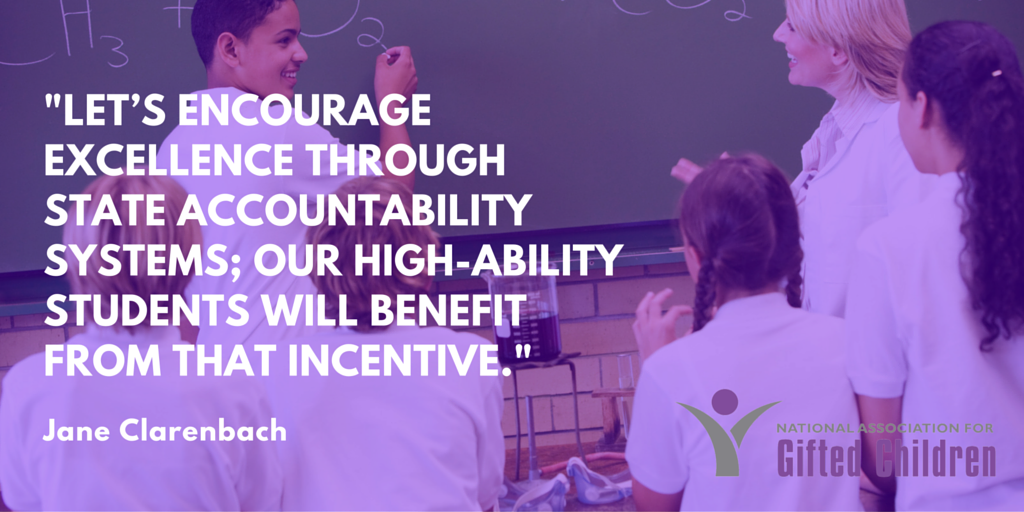NAGC works to support those who enhance the growth and development of gifted and talented children through education, advocacy, community building, and research

NAGC works to support those who enhance the growth and development of gifted and talented children through education, advocacy, community building, and research
Register for NAGC22 to attend more than 250 educational sessions and network with others passionate about gifted children
Today on Capitol Hill, U.S. Education Secretary John King withstood another round of repeated questions and criticisms from Members of Congress about the Department of Education’s proposed Every Student Succeeds Act (ESSA) accountability regulations. Although most of the time was spent on the “supplement, not supplant” state/local funding issue, there were a couple of references to another aspect of the accountability provisions that could positively impact high-ability students: Flexibility states have to add indicators to their accountability systems.
As we know from National Assessment of Educational Progress (NAEP) and state assessment data in the No Child Left Behind (NCLB) era, few children of color or from low socioeconomic status (SES) communities are achieving at the advanced level.
The reasons are complex, but lack of access to advanced coursework and gifted education programming would seem to be contributing factors. The lack of academic rigor for these high-ability students will also impede efforts to diversify the STEM fields and to place highly able students in selective colleges and careers.

Why not add factors to state accountability systems that will reward school districts for doing the right thing? Adding accountability factors on the availability of and access to advanced courses and gifted education programming and services could encourage districts that had previously focused exclusively on the most struggling learners to take a chance on adding rigor to their offerings to focus on other of their students.
These accountability factors could complement another new provision in ESSA, the provision that allows districts to use their Title I funds to identify and serve low-income gifted students. Imagine adding gifted specialists to a district’s Title I elementary and middle schools to ratchet up the challenge so that students can succeed in advanced courses in high school. Let’s encourage excellence through state accountability systems; our high-ability students will benefit from that incentive.

National Association for Gifted Children
1300 I Street, NW, Suite 400E, Washington, DC 20005

